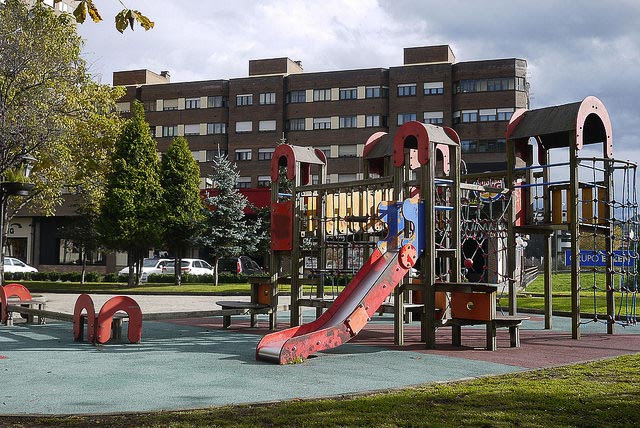More segregated cities spend less on parks, roads and sewers
The Washington Post’s Wonkblog offers insight on a disturbing trend: the country's most segregated cities spend the least on public facilities like roads, parks, police and sewers. One theory is that segregated cities, whites have their own-private sector amenities, reducing their interest in paying for similar public services (private pools replace city pools, and backyards replace parks, for example). Researchers also speculate those racial divisions make it hard to create political coalitions that support specific projects.
Ballpark neighborhood still waiting for revival years later
It’s the classic story of stadium subsidies: taxpayers build a team a new facility for a team, based on assurances that it will inevitably lead to “redevelopment.” In downtown Houston, 15 years after Minute Maid Park opened … the community is still waiting. “The extended lag before development emerged around Minute Maid should serve as a lesson for community leaders who promise that publicly funded sports facilities will revitalize urban areas,” the Houston Chronicle reports.
Philly Election Day Experiment Wants to Make Voting Fun
Voting used to be fun, with parades and parties designed to boost turnout. Today, it’s a less-celebrated affair – so much so that it’s difficult to even know where, exactly, you should vote. “I’ve lived at six different addresses since moving here eight years ago,” organizer Lansie Sylvia tells Next City. “Every single time I’ve had a different polling place, and every single time I had a hard time finding it.”
Whether it's fair or not, cyclists have an image problem: many non-cyclists feel their two-wheeled counterparts view themselves as above the law. Planetizen rounds up the research and explores why this is the case. “Attitudes matter – if a person believes bicyclists don't follow the rules of the road, they won't support protected bike lanes,” Jennifer Evans-Cowley writes.
Thanks to smartphones, nobody can ever unintentionally get lost in a city ever again CityMetric's Peter Watts writes. Getting lost sharpens the senses and improves memory, so we may be losing something by having perpetual access to online maps. He offers up guidance on ways pedestrians can intentionally get lost in an effort to explore their cities.
9 Annoying Things You Do in Cabs, According to a Cab Driver
Emir Ayed, a longtime Boston-area cab driver, shares with City Lab his take on taxi passenger faux pas. If you bring food in the cab, ask your cabbie to speed or whistle to hail a cab ... chances are your driver will hate you. You should also plan on tipping 15 to 20 percent.

